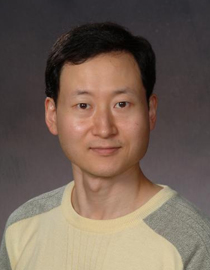New Frontier of Biophysical Discovery Using Supercomputers

Associate Professor
Department of Biomedical Engineering, Texas A&M University
Location: Student Computing Center (SCC) - Room 4.210F
Time: October 24, 2016 - 2:30-3:30pm
Abstract
A new era in biomedical research is dawning where computers are used to discover the underlying physical principles. This is spurred by recent advances in experimental modality where biomolecular structures and their dynamic behaviors are measured with accuracy and resolution that enable quantitative modeling. Another critical factor is the increase in the capacity and speed of supercomputers. It has only been during the past several years where simulations of bio-macromolecules could be performed in time scales that approach experimentally relevant regimes. As examples, two projects in my lab will be described: On the motor protein kinesin, we found how it uses the chemical energy of the fuel molecule is converted into mechanical work. About DNA, we developed a novel way to describe its mechanical properties and the structuring of surface water molecules, which provide insights into the interaction of DNA with other proteins and also packaging of genome. It is expected that computer simulation will play an increasingly significant role for establishing a clear, quantitative, and physics-based understanding of biological phenomena.
Speaker's Bio
Dr. Wonmuk Hwang received his B.S in Physics from Seoul National University in Korea and Ph.D. in Theoretical Condensed Matter Physics from Boston University. He then expanded his research into Biophysics/Bioengineering during his postdoctoral training at the Massachusetts Institute of Technology. Dr. Hwang started his faculty position at Texas A&M in 2004, and now he is Associate Professor in the Departments of Biomedical Engineering and Materials Science & Engineering. Dr. Hwang explores a wide range of problems including: motor proteins that carry out intracellular transport and cell division; mechanics of biofilament assemblies; molecular basis for the adaptive immune system; and automated analysis of massive bioimaging data for image-based model building and simulation. Dr. Hwang's research also involves developing computer simulation and analysis methods. Through these projects, Dr. Hwang advances fundamental knowledge in biology and biophysics that in turn may lead to novel therapeutics and biotechnology applications.
